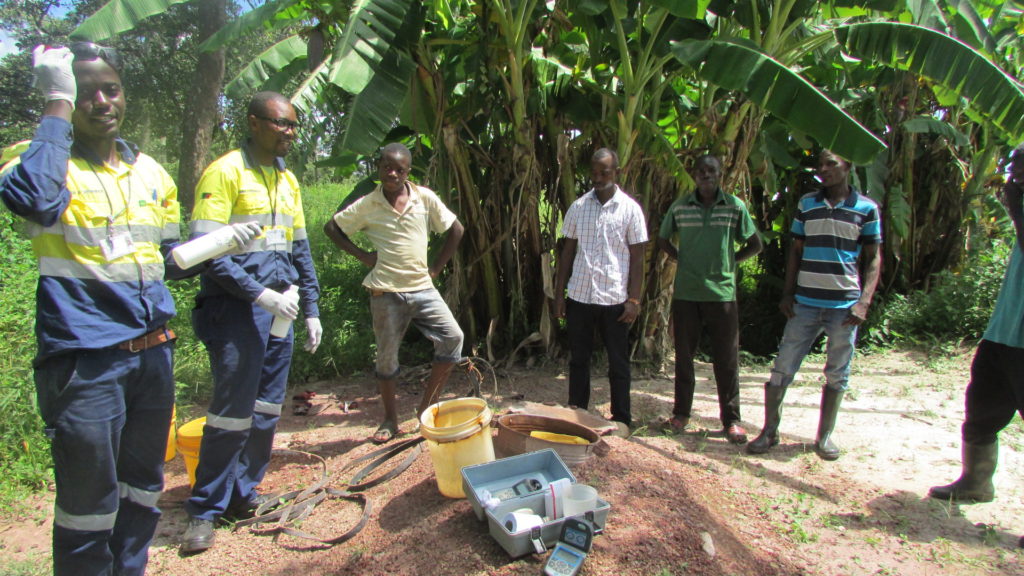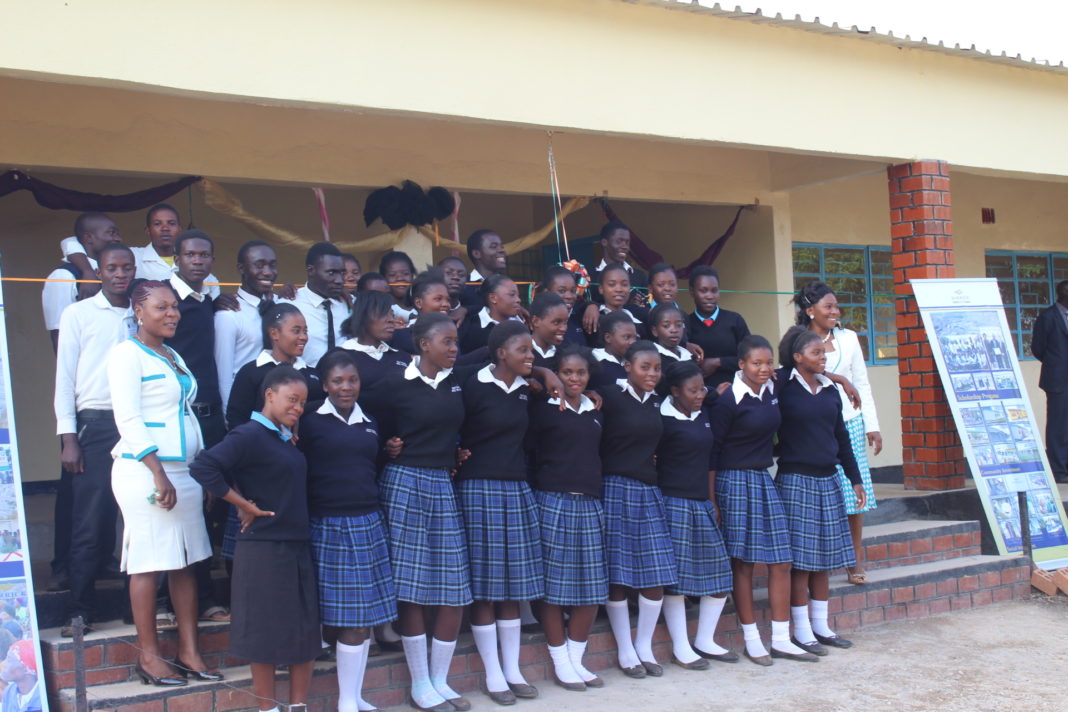In March 2019, Barrick Lumwana Mining announced the allocation of K1.3 million (approximately US$ 106,000) for this year’s sponsorship of Zambians in secondary and tertiary institutions. A total of 183 individuals have received scholarships under this programme, which targets youth in the Mumena, Matebo and Mukumbi chiefdoms – and, to a lesser extent, North-Western Province as a whole.
But funnelling capital into education in the Lumwana area is not a new initiative for Lumwana Mining Company (LMC). In 2018, it spent approximately $40,000 (K 490,000) on scholarships for around 100 students at Mutanda Secondary School, which covered their tuition, board, exam fees and uniforms. The year before, it allocated the same amount. And the year before that.
Ever since LMC began mining operations in Lumwana a little over a decade ago, it has been working to narrow the gap between the relatively large number of middle school-leavers, and the low proportion of graduates at secondary school and tertiary level.
“The rural Zambian setting is one of the challenges in this area,” says Christopher Mukala, who has been the Sustainability Manager at LMC since 2016. “The majority of local people do not go into high school. I must say, there are only three high schools within the local area, and boarding schools are difficult to afford. So, we saw the opportunity to drive them into high school, and then eventually, to colleges and universities – and to get doctors, teachers, nurses for the area.”
Increasing the number of educated Zambians in the area addresses two of the issues on LMC’s doorstep. Low education levels impede development in the country as a whole. Added to that is LMC’s need for local talent and specialised skills. Providing scholarships and training for locals – some of whom take up employment at the mine – is a win-win situation.
“We saw the opportunity to drive them into high school, and then eventually to colleges and universities – and to get doctors, teachers, nurses for the area.”
“If we’re able to improve the human resource base in the Lumwana area, the locals will have access to more of the professional jobs within the province. Right now, it’s mostly people from outside the province who fill those positions,” says Mukala.
The scholarship programme is one of the initiatives that was set up by LMC in 2013 to respond to the challenges of education in the local area. Scholarships are offered to students through two types of programs: one for children from so-called vulnerable homes (such as where a parent has died, or finances are particularly limited) and another for academically promising students.
Twenty-five-year-old Kalenge Muluka was one such recipient. He wanted to be a mining engineer for as long as he can remember. He was in Grade 9 when he became one of ten students who were selected to go to Solwezi High School on an LMC scholarship. “LMC came to my community and talked to the chief. I was very motivated, and from those ten students, I was among the two who managed to pass Grade 12.”
He remembers an LMC representative visiting his school. “They said: ‘If you do well in Grade 12, we will sponsor you at university.’ I was accepted at Copperbelt University, then I applied for a scholarship and was sponsored from my first year to my final year.”
Muluka graduated with a Diploma in Environmental Engineering and, a year later, applied for a job in LMC’s mining department that he saw advertised. But he didn’t stop there. “Last November, I requested a department transfer to the field I studied – now I’m working as an environmental technician.”
Meanwhile, he is studying Environmental Engineering part-time. His academic record allowed him to skip ahead and start in third year. “Without Lumwana, I don’t know where I would be. Education is expensive, especially university.”
LMC continuously re-evaluates the programs that it sponsors. “Every year we review the courses, and have consultations with the three chiefdoms to understand the issues and people’s preferences,” says Mukala. “For example, this year we’re focused on artisans. There’s an institution in Ndola where people are trained at diploma level in electrics, like boiler-making. We’re also focusing on training maths and science teachers.”

LMC’s investment in education is noticeably bearing fruit. “I think we have really scored some successes with the scholarship scheme. In the past, running what we are call ‘local employment programs’ where we find local people from the three chiefdoms for employment opportunities would have been very difficult. Since we launched this scholarship programme, we are able to testify that people who got scholarships have completed college or university qualifications. Some of them are even working at the mine now.”
Education will continue to be a key focus for the Lumwana Community Trust, says Mukala. He has been in Lumwana for long enough to have seen first-hand how transformative education in the broad sense can be. “When you change people’s mind-sets through education, they are able to participate in social and economic development. Education is a gatekeeper in terms of addressing other issues – health, economic participation, a number of issues. Education is everything.”
See also: Small school, big dreams
























I love this school I want to be there for this January 2024 intake
How can someone get a 100% school sponsorship from Barrck
How do I get a sponsorship from barrick lumwana mine
How can I get a 100% school sponsorship from Barrick